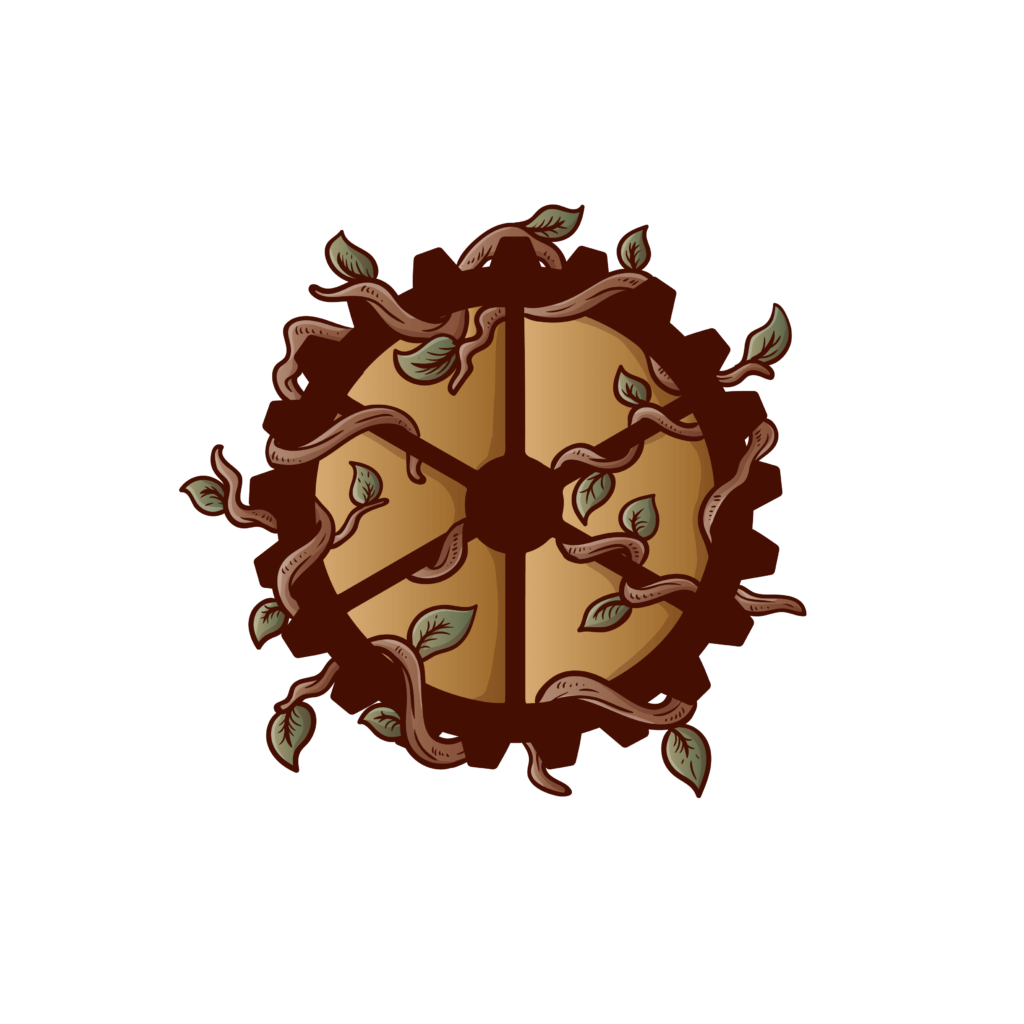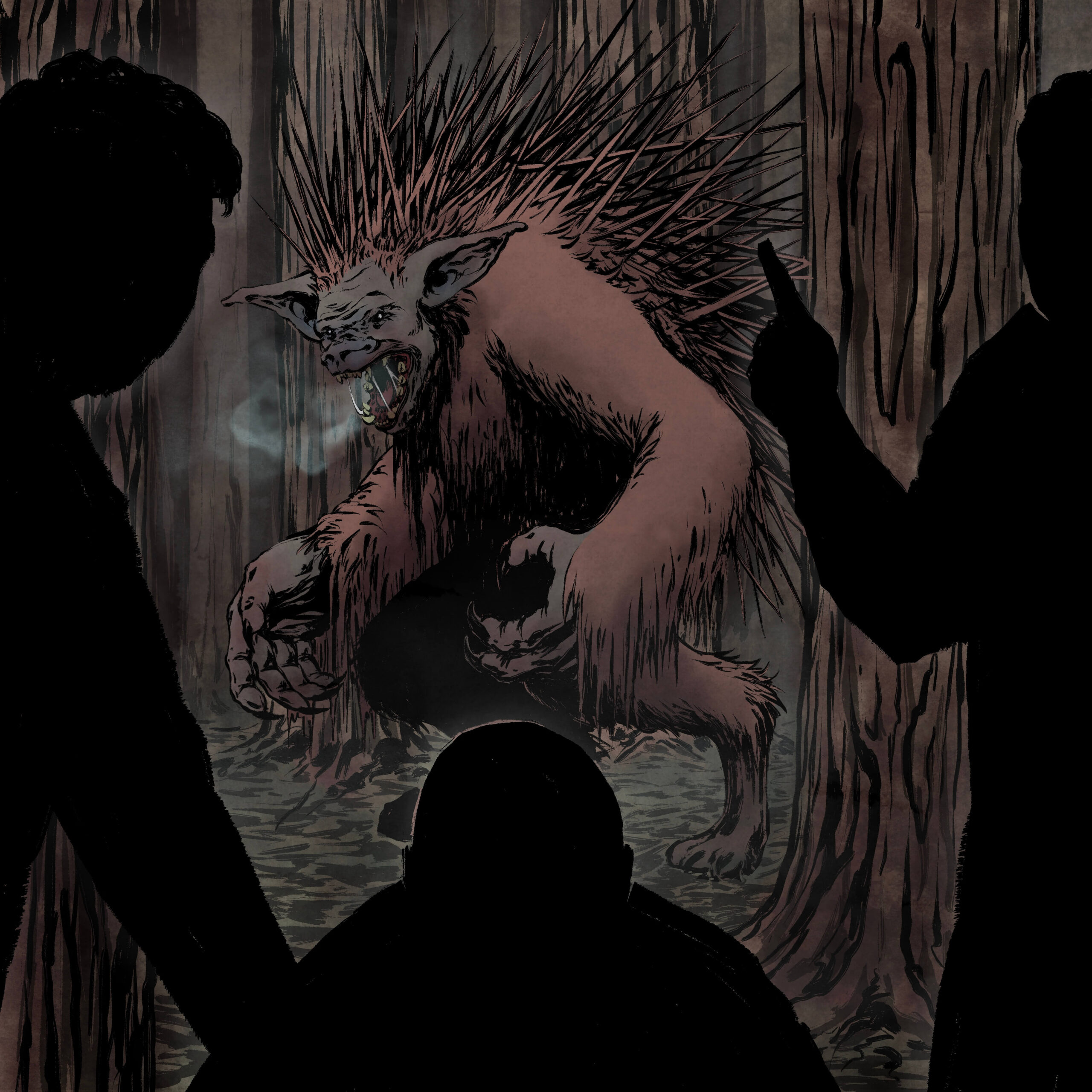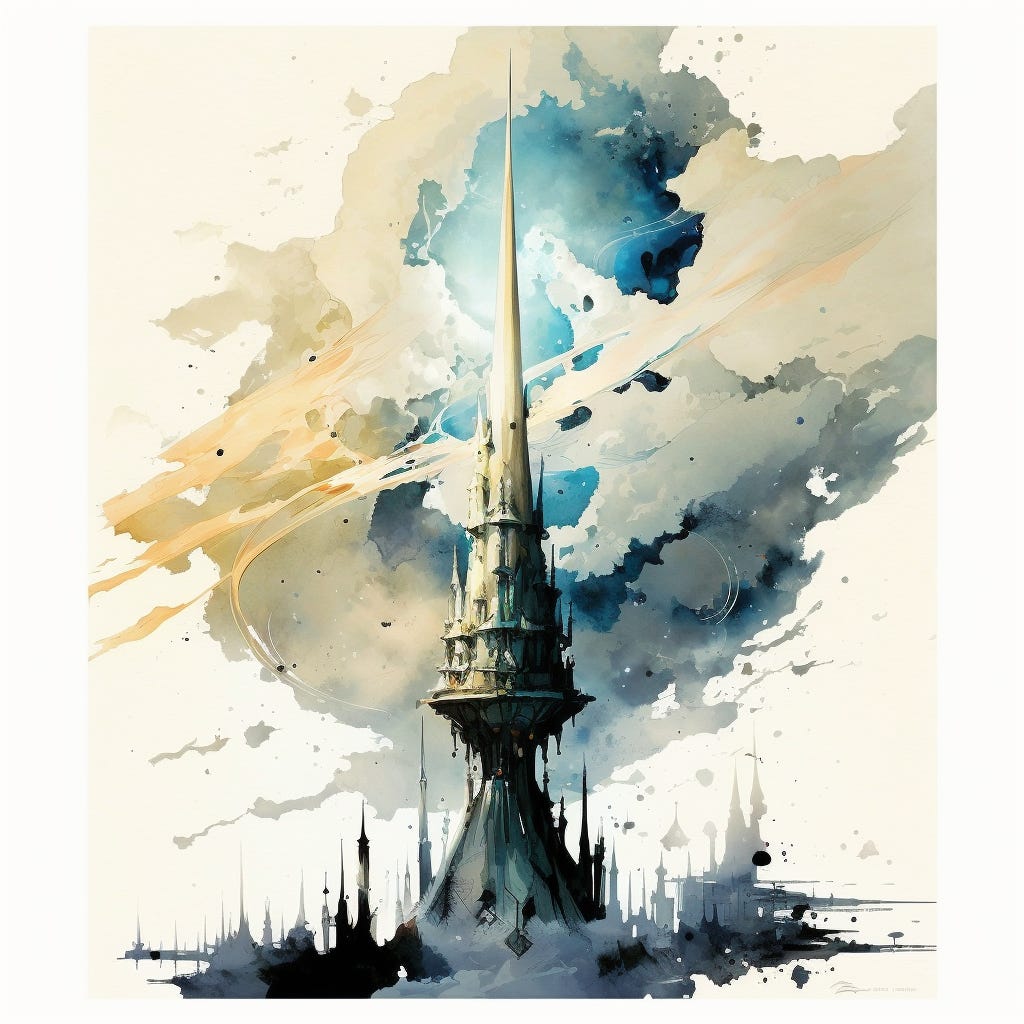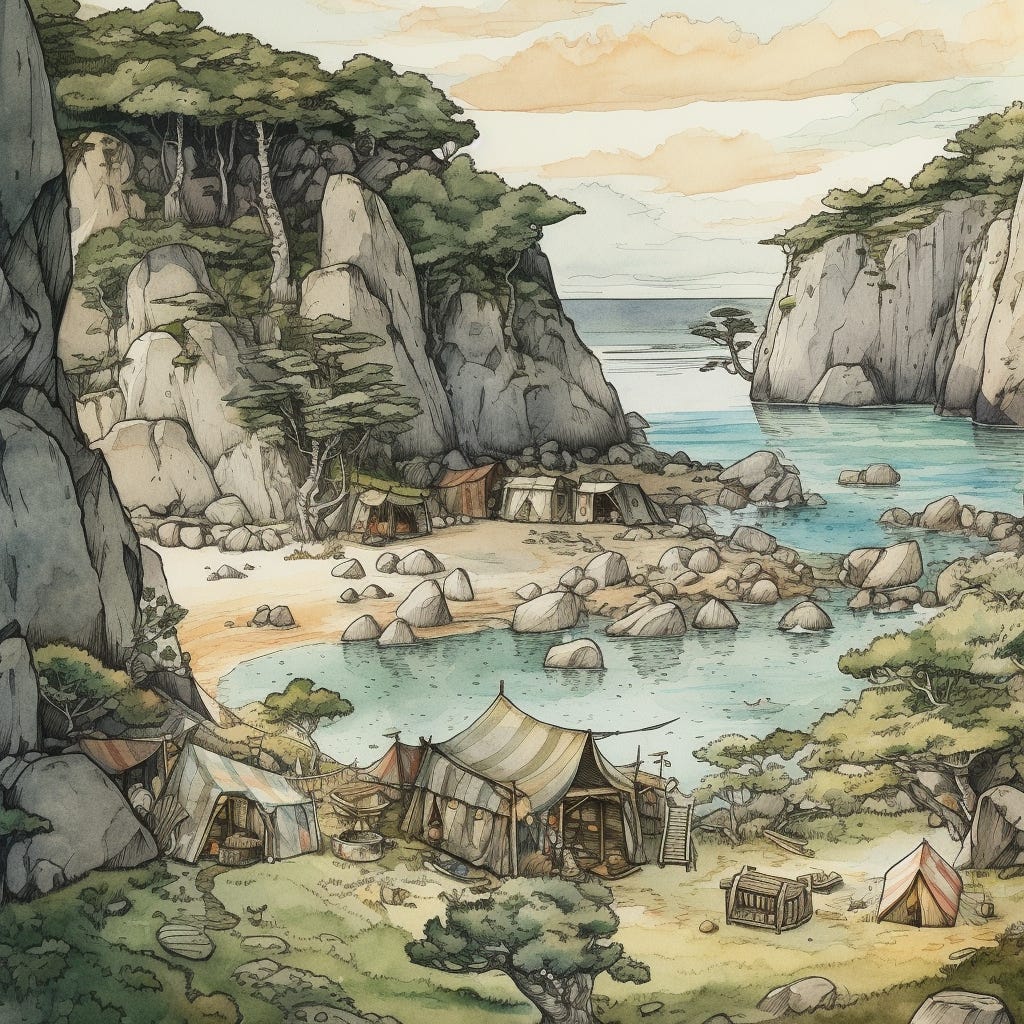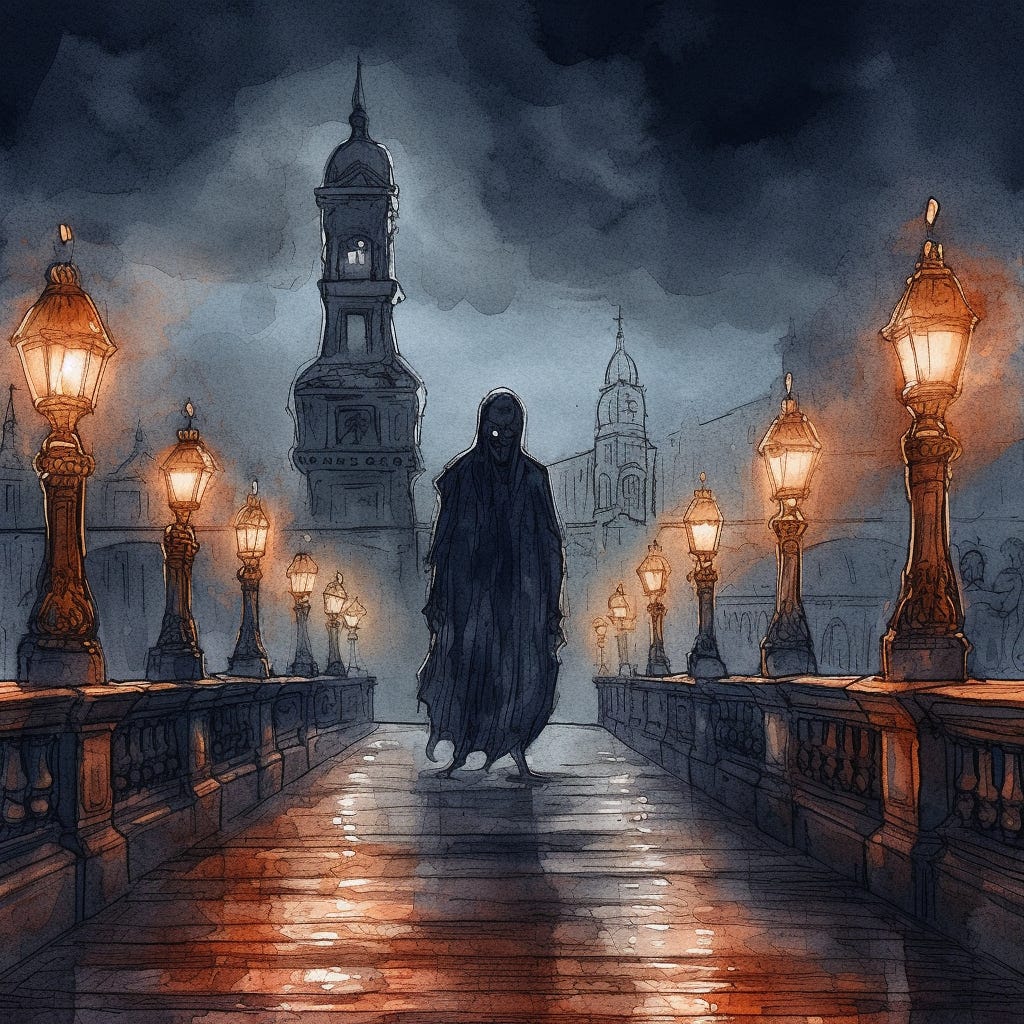Wash Away the Plague
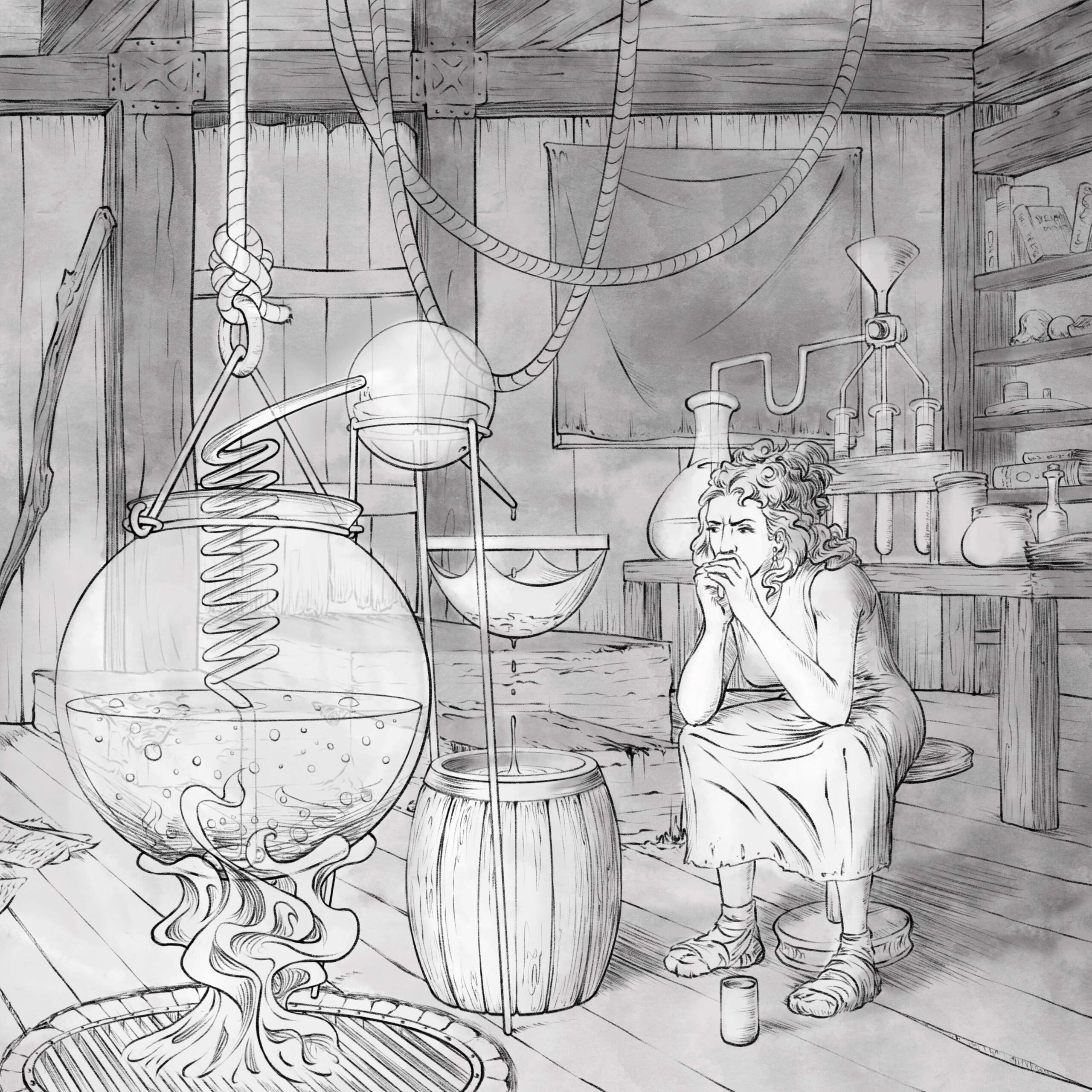
Belisaria Horne had spent her entire life desperate to erase the stink of where she came from.
Now, a cauldron of dark and odorous water hung from her cramped lab’s stone ceiling above a hungry flame, boiling. A swirl of snaking pipes pumped the boiled water, one drop at a time, onto a fine iron sieve, filtering out anything undesirable: Sediment, filmy grit, the bones of small rodents — and even the shit from the blubbering public toilets three blocks away.
Belisaria wished the sieve could work on her memory.
From the sieve, the remaining liquid filtered through a screen of gereen cloth, a thin textile imported from the Sand Wastes. The dense but breathable fabric once used in ancient rites had recently been in high demand since The Blue Plague first struck.
And using the gereen cloth as the final step in filtration had been Madilyn’s idea.
Belisaria’s throat caught, jaw rigid. Wrinkled, indigo flesh flooded her thoughts — unable to filter the past out any longer. Not knowing how long she held her breath, she coughed, choking back her grief.
The treated water that survived the sieve and the cloth landed in a wooden barrel.
Beside the barrel was a modest table. Yet another flame heated several liquids in opaque glass beakers. Soon, nothing would remain of the liquids but crystallized green-yellow powder.
Skaardruf willing, this hydrated chemical powder would save Amal.
“What do we call it?” Madilyn’s voice from so long ago skittered across Belisaria’s memory.
Belisaria never gave Madilyn a proper answer. Blue stains had already begun to appear in her wife’s gums. The putrefying sweats came not long after. Then the burning skin….
Belisaria shook it all away. She twisted long-vanished hair before she realized she was doing so. The burr cut had been a necessary and reliable survival tactic in times of disease.
She put on worn leather gloves, then removed some of the fine powder from the pile.
Belisaria paused, debating proper ceremony.
“Bouledar,” she said, “thanks for nothing.” The god of healing and community had been asleep at the wheel a long gods-damn time. What healing must be done, she knew, would not be done by gods.
And with that, she sprinkled the chemicals into the water.
The powder and the liquid danced a colorful dance of blue bubbles and auburn fizz.
The liquid settled and cleared. Belisaria dunked a cup into the liquid and filled it to the brim.
Then she took a long, deep drink.
⚙︎⚙︎⚙︎
Belisaria had perfected her method to purify the city’s foul water eight months ago. And for eight months, nothing had changed.
She had besieged Budimir Krijan, her overseer at the sewage treatment site. She had campaigned the Hundred Houses for a charter to disinfect the city’s waterways. She had sent scrolls to the town’s guilds and even the Imperial Council.
Nary a word in response.
So Belisaria found her way to a community council meeting in Pauper’s Notch, where Cerric Finewood — the former Imperial Treasurer now waylaid to local politics after his scandal with the Rilk’gar resin — sat struggling to hide his boredom.
Belisaria had been neither invited nor expected. She certainly wasn’t welcome. Budimir was too embarrassed to feel angry: Her presence was quite obviously his fault since he’d been so easy to follow.
To avoid the complaints of the lowest commoners, Cerric spent more energy hiding the time and location of their meetings from the public than in any acts of actual public service. But the council’s meetings were technically open to anyone, so he couldn’t stop Belisaria from speaking.
“This water came from our sewers,” she finished. She held up an ostentatious deerskin flask. “And now it’s drinkable.” She took a long gulp.
A man in the room gagged at the sight.
Belisaria lowered the flask and wiped her mouth. She motioned to the cups of clear water on the table in front of Cerric, Budimir, and the other men on the council.
“Please, try some,” she said. “It doesn’t even smell.”
Cerric tempered a giggle.
Budimir cringed. “I thought we decided to stop this little experiment, Belisaria.”
“You did, Budimir,” Belisaria responded brightly. She took another aggressive gulp of water. The man who gagged tore out of the room.
“This could end the Blue Plague once and for all,” she said.
“The plague is already finished,” snorted Cerric. “It was but a nasty hiccup, now sated.”
“Tell that to my neighbor,” Belisaria said. “She just lost her third son to the Blue.”
“With such poor luck, maybe your neighbor should stop having children,” Cerric said. “Explain something to me, Miss…?”
“Horne,” Belisaria said. Her smile grew tighter.
“I’m no scientist” — Cerric said the word like it was a thorn up his ass — “but ‘twas mosquitoes responsible for spreading the Blue. What does your ‘water,’ if it can be called that, have to do with it?”
“The waterways hastened the spread,” Belisaria responded. “Not just in our neighborhood, but all across Amal.”
“Another notch against the Notch,” Cerric said, sipping from a glass of wine instead of the sewer water. “Thank you for the amusement, Lady Horne.”
Cerric nodded to the guard standing watch. Or at least that’s what Nardley Yent was supposed to be doing. The guard was instead snoozing against the wall. His snores had provided quite the orchestra for Belisaria’s story.
Cerric threw one of the water glasses at Nardley. It landed nowhere near him, but Nardley stumbled to attention at the shattering.
This time, Nardley did catch Cerric’s eye. He started toward Belisaria.
“With all due respect, Sir,” Belisaria said, “this is an opportunity for you to rehabilitate your image.”
Cerric hardened. “My image? Pray tell, what’s wrong with my image?”
Belisaria knew not to regale Cerric with the songs she heard at the Ale & Marrow.
Nardley, however, had no such compunction.
“His wives need finer wood,” Nardley hummed, “for Cerric’s wood’s no good—”
“Get her out of here!” Cerric roared.
“Imagine if you, Cerric Finewood, purified our water,” Belisaria shouted as Nardley carried her out. “Vanquished the Blue Plague once and for all. The savior of the Notch!”
The doors slammed behind her.
“They never listen!” Belisaria howled into Nardley’s ale-stinking face. “Why do they never listen!”
“Belisaria.” Budimir appeared and closed the doors once more.
“Why won’t you listen?”
“It’s all too dangerous, Belisaria,” Budimir said. “What about side effects or—”
“I’ve been drinking this water for months and I haven’t felt—”
“—or you made things worse?” Budimir finished.
Belisaria choked on the very thought.
“What could be worse?” she said.
“Belisaria—”
“Our water hasn’t been drinkable since gods-know-when!”
“Belisaria, listen—”
“This purification could reunify the city and propel Amal into a brand new—”
“You’re fired.”
That shut Belisaria up.
“I’m sorry,” Budimir said. “You’re fortunate the Catechism doesn’t take you. You used government money and property without our permission and against our orders. But after Madilyn—”
Belisaria bristled.
“I shouldn’t need permission to help Pauper’s Notch,” she said.
Budimir shrugged. “That’s where you’re wrong, Belisaria,” he said. “There is no helping Pauper’s Notch.”
⚙︎⚙︎⚙︎
Belisaria was done asking. She was done pleading. She was done begging.
But she couldn’t get rid of Nardley.
So she got him even drunker: First on ale, then on cider, and then — to make it really last — on fermented icress petals.
Then she fled into the dark streets of Pauper’s Notch. Nardley somehow followed.
That the Notch didn’t have much in the way of nighttime illumination had been a thorny subject for Belisaria and Madilyn in their never-ending debate about having children. Belisaria had been decidedly against kids: too dangerous.
But now, the darkness suited Belisaria just fine.
The piles of plagued corpses put to torch on the city’s outskirts had lessened, but there were still distant plumes of blue flame and smoke scattered across Amal: Her only source of light since the new moon was obscured by the wealthier neighborhoods.
She scrambled around the crooked cobblestone steps, just one of the many things Pauper’s Notch was known and loathed for, lugging a hefty gunny sack.
Nardley lurched beside her, deep in his cups.
As far as she could tell, no one had seen them since they left her lab. They were now under the stone eaves of an ancient bridge made without magic.
“Poor King Cog, had a wee hog,” Nardley half-wheezed, half-sang out of tune.
“Quiet,” Belisaria snapped. She’d expected him to pass out long ago, but Nardley had a liver blessed by a bibulous god not yet known.
They crept — rather, Belisaria crept and Nardley stumbled — toward their destination.
“Wee, wee hog,” Nardley sang, “No-one would snog—” He vomited, loud and heavily.
Belisaria scurried away, but Nardley grabbed her ankle.
“Skaardruf’s scrote,” Nardley gagged, “what’s that gods-awful smell?”
There was a stench of poverty, grief, and oppression. It was the stench of their low station, the same low station that had turned her beautiful Madilyn’s face a curdled, sulfurous blue.
“Pauper’s Notch’s reservoir,” Belisaria said. “Our drinking water — right atop our sewers.”
She led him to a collection of cylindrical stone piles acting as the bridge’s original foundation. One of the pillars was not like the rest. Buried within the stone was a rusted iron door camouflaged by night and indifference.
Above the threshold, carved into the stone, was an old symbol: the thirty-seven disparate lines split and united into the ancient cross of Old Amal.
“If you’re going to insist on staying,” Belisaria said, “be useful.” She shoved the gunny sack into Nardley’s chest.
He took it with a smile.
Belisaria turned back to the door. She swung it open, revealing the stairs to the sewer, and began the long descent.
Nardley followed.
“Old King Cog,” he sang, “The horniest sod….”
⚙︎⚙︎⚙︎
Belisaria wandered in complete darkness, walking with her hands more than her feet, feeling the walls as best she could.
She knew she was going the right way only because of the growing scent.
“How can it get worse?” Nardley wondered behind her.
She almost couldn’t believe it herself: The stench was in her now, but then again, perhaps it always had been. An infection that was her birthright, bubbling beneath her flesh, infected even without the Blue Plague.
There was light ahead of them; Belisaria could tell it was enchanted because it burned cold and blue, not hot and orange.
When they reached the light, they found themselves in an ancient circular cavern. The water here was syrup thick, but moving, roiling, drifting down disparate paths that surely traveled throughout Amal.
Belisaria knew immediately: Here was where their water became foul. Here was where the Pauper’s Notch pollution began.
As if to mark the spot, Nardley spewed fresh bile onto the black steps at their feet.
Belisaria took the sack from Nardley. She untied it and grabbed the green-yellow powder, as much of it as she could make in the biggest flask she could steal.
“What is that?” Nardley asked, dangerously coherent.
Madilyn’s face came to Belisaria again. Madilyn was all freckles, with auburn hair braided on either side of her smooth round face.
“I call it belyn,” Belisaria said.
And then they heard footsteps.
Budimir Krijan entered, an infant Rilk’s spine dangling from his teeth like a macabre toothpick.
“Belyn. What a lovely name,” he said. “You and Madilyn had a child after all.”
He carried a crossbow with him.
It was then Belisaria realized it wasn’t that Budimir didn’t believe her. It wasn’t that he was afraid of her work.
“You wanted the credit,” she said.
Budimir aimed the crossbow and moved closer.
“Give me the chemical, Belisaria,” Budimir said. “Let me do what you cannot. I’ll bring you back. I’ll promote you. But they’ll never accept a commoner’s solution to the waters after so many hundreds of others with the Imperial decree failed.”
Belisaria backed into Nardley. “This is my work,” she said. “This is Madilyn’s work.”
“The Belisaria I know would never let selfishness and pride prevent a good deed,” Budimir said.
He was close, now. The arrow lodged in his crossbow tapped against the glass flask. Belisaria held it tighter.
Budimir reached for the flask.
“Wee, wee hog,” Nardley sang. His arms wrapped around Belisaria’s waist. “No-one would snog—” He swung her away and out of the crossbow’s aim. “Run!” he said. “Do what—”
The arrow burst from Nardley’s shoulder, halting halfway through. Nardley fell atop Belisaria. They both crashed to the floor.
Belisaria shielded the flask with her body. But the impact of the hard stones and Nardley’s weight crushed the strength from her.
The flask rolled away, its stopper secured, right into the sickening, whirling waters.
“No!” Belisaria screamed.
“Gods-dammit!” Budimir shouted. He groped for another arrow.
“Ow,” Nardley said, staring at the arrow in his shoulder. “Owwwwww—”
Belisaria threw Nardley off. She scrambled to the edge, but the flask was rushing to the center of the waters.
She thought of Madilyn.
And then she dived into the syrupy, stinking water.
As it rushed into her nose and clogged her ears, she was surprised at how warm it was.
She surfaced from the thick noxious stew of Amal, struggling to see through the muck that wouldn’t clear from her eyes and desperate to breathe through the mush that wouldn’t drain from her mouth. The flask just within her reach.
She stretched for it, but an arrow pierced the space between the flask and Belisaria.
Behind her, Budimir reloaded his crossbow. But Nardley threw a wild left-hook, striking Budimir’s face.
The Rilk’s spine speared both of Budimir’s cheeks like a kebab, but the man wasn’t down.
Belisaria swam for the flask. It rushed still away, not yet overtaken by a deciding current. She leapt for the flask and grabbed it, but it slipped through her hands: The waters had coated her hands and skin in something slick and oily.
She paddled against the water. The taste of black rot and the stench of old shit filled her lungs. She leapt forward like an awkward seal, ensnaring the flask in her arms. Finally!
“You could have lived!” Budimir roared at Belisaria. He had managed to roll atop Nardley and was bearing down on the poor drunk with another arrow in his hands.
Belisaria had lived. She had lived before the Blue Plague took everything. Before this city took Madelyn.
It was enough.
She pulled out the cork.
She held the flask over her head.
She dove once more into the water.
And she dumped the bright green contents of the flask into the waters.
The belyn lit up like blue and auburn embers in the black water. And then the embers connected to each other like lines, or bridges, or hands reaching out for one another.
And then the world exploded into roiling, fizzing light. She squeezed her eyes shut and was still blinded. Her skin burned and tickled. She felt a thing like a great claw reach into her mouth and down her throat as if to scoop out some poisonous mass in her stomach. Everything shook. The water spun. She could not tell if she was up or down.
The liquid poured out of her mouth as Nardley pulled her out of the water. Her lungs were on fire. Her eyes might as well have been rolling away. Her head felt like it was split open.
“You’re wet!” Nardley gasped.
She moaned, rubbed her eyes, and crawled toward the edge of the walkway, keeping her eyes away from Budimir’s unmoving body.
“The water,” she croaked. Her throat was scratchy and sore.
She looked over the edge. She could see right through to the old stones laid however many hundreds of years ago. A shimmering blue face stared back at her, emaciated and devastated.
She looked away. She had failed Madilyn once again.
“Where’s the water?”
“But — it’s right there,” Nardley said. “That’s your reflection, isn’t it?”
Belisaria looked back.
Nardley was right. The water was as clear as glass, tinted blue in the light of the enchanted flame. The face that stared back at her was her own, not Madilyn’s. After everything, to see her own reflection in the waters of Pauper’s Notch…
“A wench dives into the sewers, her drink a quench for the stench,” Nardley sang. Already he was rummaging through Belisaria’s gunny sack. “Do you have any more magic spirits?”
Belisaria’s reflection smiled, rippling as tears dotted the new fresh waters.
The woman herself took a deep breath. She noted, with not a small amount of pleasure, that Nardley’s song was true: The stench had gone.
